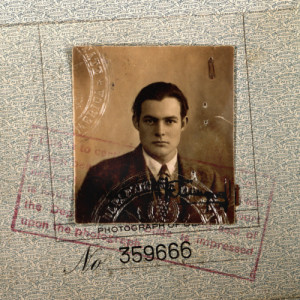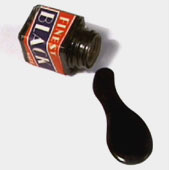
–Ernest Hemingway
Writing is one of those things that, like exercise, we avoid even though we know we’ll feel so much better once it’s over. Why do we hear so much about writer’s block, but hardly ever about dancer’s freeze, or composer’s silence, or any other kind of artistic paralysis? Any ideas? Whatever the reason, we’ve all experienced that reluctance to sit at our desks and put words on paper.
Here are some thoughts on overcoming that resistance:
- Take a break. The Muse loves play. Hilary Mantel: “If you get stuck, get away from your desk. Take a walk, take a bath, go to sleep, make a pie, draw, listen to music, meditate, exercise; whatever you do, don’t just stick there scowling at the problem. But don’t make telephone calls or go to a party; if you do, other people’s words will pour in where your lost words should be. Open a gap for them, create a space. Be patient.”
- Be willing to suck. James Thurber said, “Don’t get it right, just get it written.” This is the famous “vomit on the page” strategy. Whenever I hear someone say that they’re waiting until they have the right words to sit down and write, I know the thing won’t get written. Every single writer in the world has generated cringe-worthy prose. Even Shakespeare. (He was just lucky to write before the internet, a medium in which every single mistake we’ve ever made comes back to haunt us.) Besides, it’s okay to have a crappy first draft because writing is rewriting. And it’s always easier to rewrite something that’s already there.
- Schedule it, then set a timer. Block out a time for it every day, as if it were exercise. Then set a timer to go off after 45 minutes, an hour, whatever. Just make sure you’re putting down words for the whole time, even if they make no sense.
- Have a ritual. Some people need to tidy up their desk, others need to sharpen all their pencils, still others start with a writing exercise. Whatever you need to do to get you in the mood, do it.
- Start with a warm-up. One of my teachers in grad school started his day by writing a sestina. You could try a haiku instead, or a short writing exercise like, say, scribbling a short paragraph about a photograph (Tumblr is a great source of compelling images).
- Switch medium. Whenever I find myself hitting the backspace key or surfing instead of getting anything done, I walk away from the computer and take out pen and paper. There’s something about the messiness of real ink, the intimacy of handwriting, or, well, I really don’t know what it is, all I know is that when I’m stuck for inspiration, going back to longhand works for me every single time. Other writers swear by the typewriter. Cormac McCarthy (who, by the way, used to write on an Olivetti Lettera 32 like the one I own), Woody Allen, and Don DeLillo are still die-hard typists. Whether it’s crayon or Sharpie and a yellow legal pad, what matters is what works for you.
- Reward yourself for doing it. Maybe one of the reasons we procrastinate is that we see writing as a chore or, worse, as a punishment. It IS hard, no doubt about it. So, why not give yourself a treat afterward? It doesn’t have to be expensive. It could be a simple as a walk in the park, a conversation with a friend, or an ice-skating session.
- Direct your writing to a friend. Sometimes the best way to shush that inner critic is to find a friend. Write your piece as if you were talking directly to her, especially if she is already a fan.
- Change locations. I used to roll my eyes at people who would write at coffee shops. It felt so, I don’t know, show-offy. Well, once my home became my workplace, I found that there were days when I was less productive if I stayed at my desk. Also, it gets lonely! Sometimes I move to my couch, and other times I really do need the din and bustle of a coffee-shop to get the words to flow. (It helps that I’m spending money and, practical person that I am, I feel more motivated to get something written or I’ve wasted my hard-earned dollars.)
- Enter it through another art form. If there’s music or artwork that captures the mood you’re trying to set, play the piece on your iPod or tack it up nearby. Savor it fully and then try to pin it down in your own text.
- Give yourself a number target. In a Paris Review interview with Fran Lebowitz, I found out that Hemingway used to shoot for a specific number of words every day. And Lebowitz once saw a Twain manuscript that bore his daily tally of words in the margins. You can use online word counters or the Word Count tool in your word processor. And if you don’t reach your target, don’t beat yourself up. The point is to encourage yourself to keep at it, not to make the task seem like a punishment. Writing is hard enough!
- Remind yourself that writing is easier on the soul than not writing. Fran Lebowitz explains it best: “All the time I’m not writing I feel like a criminal. Actually, I suppose that’s probably an outmoded phrase, because I don’t think criminals feel like criminals anymore. I feel like criminals used to feel when they felt guilty about being criminals, when they regretted their crimes. It’s horrible to feel felonious every second of the day. Especially when it goes on for years. It’s much more relaxing actually to work. Although I might not strike you as languid, I’m much more relaxed than when I wasn’t writing. I’m much cheerier, I’m definitely much happier.”
